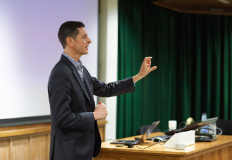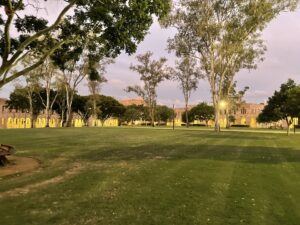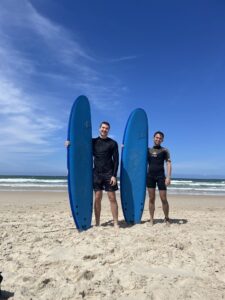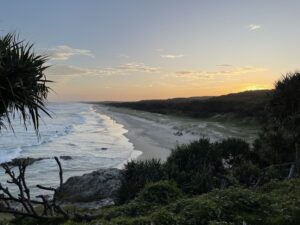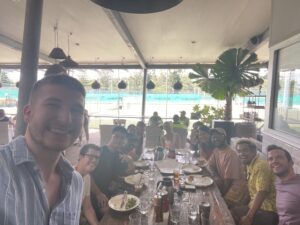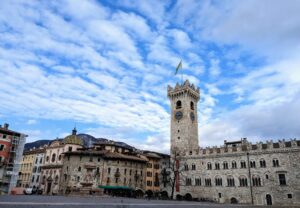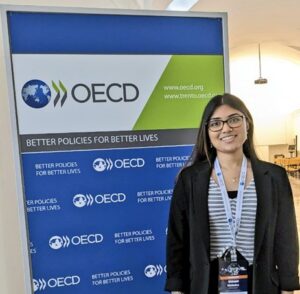Written by Abdur-Rahman Ridwan
Attending the Centres for Doctoral Training (CDT) conference organised by the Alan Turing Institute
in November 2022 was one of the spectacularly unwinding highlights of my second year (studying
a PhD with DataCDT). About a month before, I had reached the pinnacle of mental exhaustion after
being immersed in completing my annual review write up while suffering from a ligament injury. I
needed a good break, and the decision to attend the conference after initial hesitation proved
worthy. The two-day conference comprised a perfect blend of academic and non-academic activities.
In other words, I was not bored with a replicate of the academic work I had just completed.
Instead, the sessions on both days were scheduled excellently; the event smoothly transitioned
between career and industry panels, skill sessions, discussions, presentations, and fantastic
breaks between them.
“Attending the CDT conference organised by the Alan Turing Institute was one of the
spectacularly unwinding highlights of my second year.”
The first day started with a moderated discussion by CDT directors about the landscape of the CDTs in
the UK. I was surprised to learn that various CDTs across the country specialise in different disciplines
– from medicine to physics to environment to mathematics. The people at my table were a mix of
postgraduate researchers involved in pure AI and non-AI research. Everyone had travelled to Manchester
from different parts of the UK, beaming with smiles to be in a new environment, away from their cities
and research decks like me. It felt like a CDT Olympics event, but without the competition element!
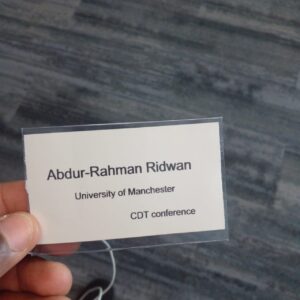
The following session was the networking and poster presentation by CDT students. I walked by poster
presentations listening to animated explanations by researchers in their cubicles to colleagues, amidst
the happy chitchats of others, networking in the background. It was interesting to observe the use of
familiar methods across different fields. I came across the presentation of a third-year researcher from
the University of Leeds who used a method I had also used for a project as part of an assessment. We
chatted about her work and the possibility of a research collaboration. I joined the chattering students,
and we introduced ourselves and our projects and shared constructive perspectives about research
issues. These fresh insights helped me to exit the thinking boxes we sometimes square ourselves in.
A mouth-watering lunch cut in a perfect transition of the day and satisfactorily left stomachs pleased.
We had a practical group session afterward that enabled us to locate our research within a larger domain
and identify research needs that the CDT could address in the future. The final session was the careers
insights panel discussion involving CDT graduates in different career roles. It is natural to be inquisitive
about the future; the panel of graduates clarified curious questions, including how they advertised their
interdisciplinary skills, secured their current roles, and how their skills are being maximised.
“the panel of graduates clarified curious questions, including how they advertised their
interdisciplinary skills, secured their current roles, and how their skills are being maximised”
The day ended with an evening reception full of drinks and light snacks, which got people chattering again.
The highlights of the second day were a skills session on responsible research and innovation, an
industry panel with students, and a powerful keynote by Sue Daley.
The skills session involved a brief lecture about a comprehensive framework for exploring the ethical
significance of technology projects. It was enthralling to learn about each project’s lifecycle model stage:
we reflected on them in an engaging group activity – from project formulation, to model updating and
provisioning. Through discussions, I made the crucial and important realisation that I can, and should,
make in-depth considerations towards the ethical implications of my research.
In another exciting group activity after a break, we evaluated stakeholder salience through a case study
that enabled us to understand how the different characteristics of stakeholders may inform various
vulnerabilities to artificial intelligence research projects. Through the activity, we learned how to use a
process-based approach to designing engagement with different stakeholders that our PhD research involves.
To cap the event, Sue Daley from Tech UK delivered a powerful speech that emphasised the
urgent need and numerous opportunities for Data Analytics professionals in the UK, and urged attendees
to progress in our research and answer the call of the world waiting for our expertise.
I walked away from the event with my head held high, and with renewed motivation and drive. If you want
to network with colleagues within, and beyond, your research field, expose yourself to relevant research
and career stakeholders, develop relevant insights about career options, and interact with potential
future employers in a relaxed atmosphere with fabulous food and drinks, then I would encourage you to
attend the next Alan Turing CDT conference. As my first-ever CDT conference experience was practically perfect,
and the conference itself well organised, I can’t wait to see what the next conference will look like!
“I can’t wait to see what the next conference will look like!”
You can keep up to date with Alan Turing events – including future CDT events – via this link.
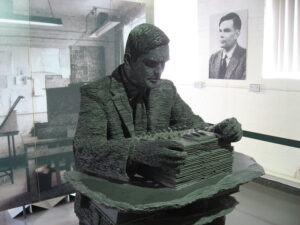
Image: Alan Turing slate statue in Wales
